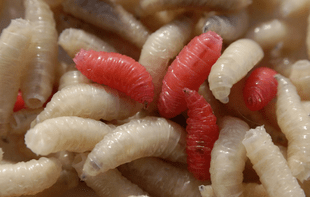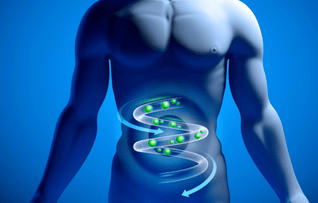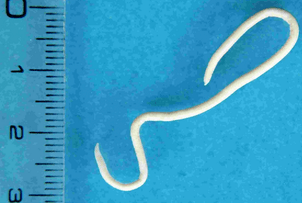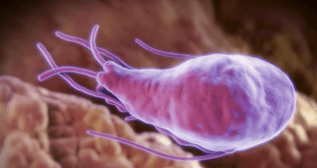For an ordinary person, it is difficult to imagine how many parasites will threaten his health. These "settlers" can live in the human body for several years, literally devour life, and poison it with poison.
Types of parasites

From a medical point of view, parasites include single cells and protozoa. According to their habitat, they are divided into ectoparasites (lice, bugs and others) and internal parasites.
Endoparasites have their own subspecies:
- Larvae produced by insects.
- Protozoa (Amba, Lambia).
- Worms (worms or worms).
Path of infection
Each parasite has its own path to penetrate the human body. The most common method is diet, that is, with the help of water or food. Many insects carry parasite larvae and pollute the environment. By eating raw water, unwashed and undercooked food, a person can become infected with parasites.
Some species are spread through direct contact between people-this path is called "contact family". For infections, there is no need to contact the distributor directly, household items are sufficient. This is how small bowel disease and other parasitic forms spread.
The same popular media transmission method. In this case, the parasites are carried by blood-sucking insects. Therefore, they can be obtained after being bitten by mosquitoes or other insects.
The last route the parasite enters is the transdermal route, and the second name is active. Infection occurs through the penetration of larvae through mucous membranes and skin. This occurs due to contact with contaminated soil or water in water bodies.
Symptoms
Parasites in the human body can survive for a long time and will not show itself. Symptoms will of course appear, but they will be disguised as other diseases. This is why a person does not know that he has been infected for a long time.

Symptoms appear most often, depending on the location of the larva, but the body can signal infection and other manifestations. The most common are:
- Flatulence,and constant, indicate the presence of worms in the small intestine;
- Diarrhea.Caused by the absorption of sodium chloride by parasites;
- Constipation.Worm tangles can block certain organs;
- Joint and muscle pain.These pains are caused by the migration of larvae in the human body, and the immune system responds to them in this way.
- Allergies.Parasites themselves are allergens of the human body, damage to the stomach wall can cause indigestion and food molecules into the blood.
- The appearance of granulomas.This is a new kind of tumor, formed by the destruction of parasite eggs wrapped in human cells;
- Skin disease manifestations;
- Anemia.People often suffer from anemia due to parasitic activity.
- Heavy fluctuations in weight;
- Mental disorders.In the course of life, parasites release toxins, which can negatively affect the host's nervous system. The consequences of body poisoning may be neurosis, depression, and anxiety.
- Bruxism.This is the method of grinding teeth while sleeping. This is the nervous system's response to the appearance of foreign bodies. However, this fact has not yet been scientifically proven.
- Sleep disorders.Usually, it is caused by an uncomfortable feeling. An example is the worm here, which lay eggs at night. After the pinworm leaves the rectum, it secretes a toxin that can cause severe itching.
- bacterial infection;
- Tumor diseases;
- Chronic fatigue.Occurs due to lack of nutrition and has a negative impact on the physical state;
- Respiratory diseases.Many parasites can live in the respiratory tract and cause disease. Other parasites cause colds by moving the respiratory system.
- Immune diseases.Parasites absorbing most vitamins will weaken the body’s barrier function and become more likely to contract diseases.
However, there are also characteristic symptoms of parasites in certain human organs. For example, papilloma, the appearance of baldness on the head, cracked heels, etc. may indicate the life of the parasite in the liver. In addition, the presence of certain types of parasites can cause certain diseases in humans.
Disease detection

Unfortunately, some doctors have denied their duties and did not send someone to study to determine the parasites in the body. The most common analysis is to transport feces for worm eggs. The fact is that parasites can inhabit various organs.
Worms are sometimes found in the human brain and eyes. Is there a high probability that eggs will enter the stool from the brain? maybe not. Even if there are worms in the intestines, the parasite eggs may not be found.
First, the doctor must perform a visual inspection of the patient. From the outside, people may suspect the existence of human parasites. The easiest way to detect them is to perform a blood test to detect the worm's special antibodies.
Description of human parasites
There are dozens of parasites in the human body.
A worm or worm is a type of worm.Their size depends on the species, for example female roundworms reach 40 cm. Some species may be more than 10 meters in length. The intestines are the favorite habitat of worms, but they are usually found in other organs and even in the brain.
For example, roundworm larvae circulate in the body, collect nutrients, and then return to the intestine to grow and reproduce in the intestine. They often live in the respiratory organs. The existence of a worm in the human body is accompanied by the disorder of internal organs, body poisoning, allergic performance and even temperature rise.
Among the worms is the pork tapeworm, which migrates to the brain through the blood. This parasite enters the human body through poorly processed meat products. The worm has a life span of up to 20 years.
This parasite enters the human body through poorly processed meat products. The worm has a life span of up to 20 years.
Pinworms develop most often in children, but are common in adults. These worms are relatively small, up to 1 cm in length. The spread of pinworm eggs occurs by contact with the family. The female exits the rectum and lays eggs in the external folds of the anus. The toxins released by females can cause severe itching, causing the eggs to fall on human hands and transfer them to all surrounding objects.
The second name of bowel disease is dirty hand disease. All personnel in contact with the carrier may be infected. Therefore, when pinworms are found, it is recommended to treat the whole family.
Toxocarais a parasite that lives in dogs. They enter the human body and develop well in it. Unlike these worms in dogs, human toxins do not emit, but they affect many organs and cause certain diseases. Since the larvae of these worms are excreted with the dog's feces, you may be infected with toxins through the soil. Moreover, the eggs of the parasite can also be spread from the dog’s moisture.
Pneumococcus and Echinococcusinfect the human body in many ways. Their danger is that the larvae will transform into cysts, which can be found in various internal organs.
Giardiasis is the simplest.Like pinworms, Giardia is the most common infection in children. They not only reduce the child’s immunity, but also delay the child’s physical and mental development.
They not only reduce the child’s immunity, but also delay the child’s physical and mental development.
This list is far from complete. The main danger of parasites is that no one is immune to infection. Their confidentiality leads to the fact that one person has fed parasites for years without doubt. Observing personal hygiene, continuous wet cleaning of the house, and compliance with the heat treatment of meat products are not good at preventing infection. It will be useful to have a doctor check every six months and pass the necessary checks to prevent the spread of parasites.

















































